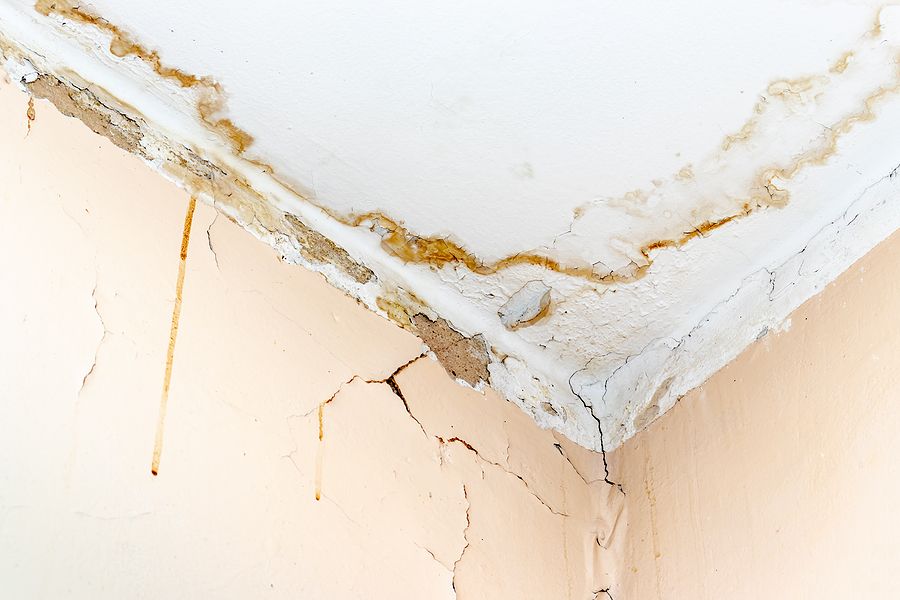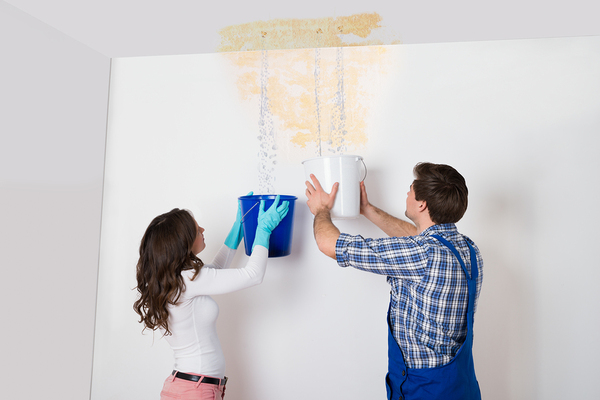Learn About the Six Common Causes Behind Water Leaks at Home
Learn About the Six Common Causes Behind Water Leaks at Home
Blog Article
Listed here below you'll find some professional expertise regarding Top Causes of Home Water Leaks.

Leaks not only create waste of water yet can also cause unnecessary damages to your house as well as advertise unwanted organic development. Regrettably, water leakages could go undetected given that the majority of the pipework in our home is hidden. By looking and also comprehending for day-to-day scenarios that cause leaks, you can secure your house from future leaks and unnecessary damage. Today, we will check out 6 leak causes that might be creating your pipes to leak.
Trespassing origins
The majority of water leaks begin outside your house as opposed to inside it. If you see an unexpected decrease in water stress, say in your faucet, require time to go out and also examine your yard. You may see wet patches or sinkholes in your yard, and that may imply that tree roots are attacking water lines creating water to leak out. You can have your plumber check for invasion, specifically if you have trees or shrubs near your residential property.
Corroded water supply
This could be the cause of discoloration or bending on your water pipes. If our plumbing system is old, take into consideration changing the pipelines since they are at a greater risk of corrosion than the more recent designs.
Faulty Pipe Joints
The factor at which your pipes connect is regularly the weakest link in the waterline. Pipeline joints can degrade in time, resulting in water leaks. Unfortunately, most of pipeline joints are not quickly noticeable. If you have noisy pipes that make ticking or banging sounds, especially when the hot water is activated, your pipeline joints are probably under a great deal of stress. It is a good idea to have your plumber inspect your system once a year.
Instantaneous temperature level changes.
Severe temperature level changes in our pipes can create them to expand and get unexpectedly. This expansion as well as contraction may cause splits in the pipelines, especially if the temperature level are below freezing. It would certainly be best if you kept an eye on exactly how your plumbing functions. The existence of the formerly discussed conditions frequently suggests a high threat.
Poor Water Connectors
Sometimes, a leak can be brought on by loosened hoses as well as pipelines that provide your devices. Generally, moving is what creates the loosened water Links. You could locate when it comes to a cleaning maker, a tube may spring a leak due to trembling throughout the spin cycle. In case of a water links leak, you may see water running directly from the supply line or puddles around your devices.
Clogged Drains
Blocked drains pipes could be aggravating and inconveniencing, but they can often wind up creating an overflow leading to burst pipes. Keep removing any materials that may decrease your drains that might block them to avoid such hassles.
All the above are root causes of leaks yet not all water leakages result from plumbing leaks; some leaks may originate from roof covering leakages. All leaks ought to be fixed right away to avoid water damage.
Leakages not only create waste of water however can likewise create unneeded damages to your residence as well as promote unwanted natural growth. By looking and recognizing for everyday scenarios that cause leakages, you can protect your house from future leakages and unneeded damages. Today, we will look at six leakage creates that may be triggering your pipelines to trickle.
At times, a leak can be caused by loose pipes and also pipelines that supply your home appliances. In situation of a water links leakage, you might see water running straight from the supply line or pools around your appliances.
Tell-Tale Signs of a Water Leak
The Sound of Running Water
If you’re hearing water running, your first step should be to check your faucets, toilet valves, and outdoor spigots. If everything if status quo, take an exact reading of your water meter and don’t use the water for a few hours. Then, take another meter reading. If there has been no change, that means water is not running (and maybe it’s time to have your hearing checked!). If the reading has changed, however, this indicates that water is indeed flowing and you most likely have a leak.
Wet or Damp Floors
You’re walking across your carpet and suddenly squish—your sock is soaked! The dog doesn’t look guilty and your child swears they didn’t spill anything. That means you’re likely looking at sewer leakage. Now, it’s easy to just soak it up with a towel and call it a day; however, this won’t stop the leak. Ignoring the problem allows moisture to build up, ultimately causing mold or mildew. Not only is this smelly, it can be very toxic and harmful to children, the elderly, pets, and those with weak immune systems. Don’t risk the health of your home and your family—call in a professional to take care of the problem.
Foul Odors
If there’s an unpleasant smell in your home and you can’t locate the source, don’t just light a candle or spray some Febreze. Funky smells are often due to mold and mildew, which spread fast under ideal conditions (optimal temperature and level of humidity). Growth begins within about 24-48 hours, and spores start to colonize in 3-12 days, becoming visible to the eye within about 18 days. If you think the odor is leak-related, get a plumber out as soon as possible to mitigate damage from rapid fungi growth (and rid your home of the foul odor).
Overgrowth in the Lawn
Unless you didn’t fertilize your lawn evenly, a lush patch of grass in a select area of your lawn, or concentrated wet spots, indicate pipe leakage which is acting as a fertilizer. Left untreated, hazardous bacteria in the underground waste will quickly turn into a messy situation, going from lush growth to lawn destruction.
Wall Cracks
Over time, even the littlest of leaks can cause cracks in the foundation of your home and compromise the entire structure. How does it happen? The leak continues hammering away at the same spot in the ground beneath your home, eventually causing it to shift slightly. Now, you’d never feel this shift, but your walls will. This can be a very dangerous situation, so if you’re seeing vertical or diagonal cracking in your walls it’s best to call a plumber right away.
https://www.expresssewer.com/blog/6-telltale-signs-of-a-water-leak-in-your-home

I stumbled upon that article on How to Find Water Leaks when perusing the internet. In case you liked our blog entry kindly do not forget to pass it around. Thanks for your time. Come back soon.
Issue? Dial fast! Report this page